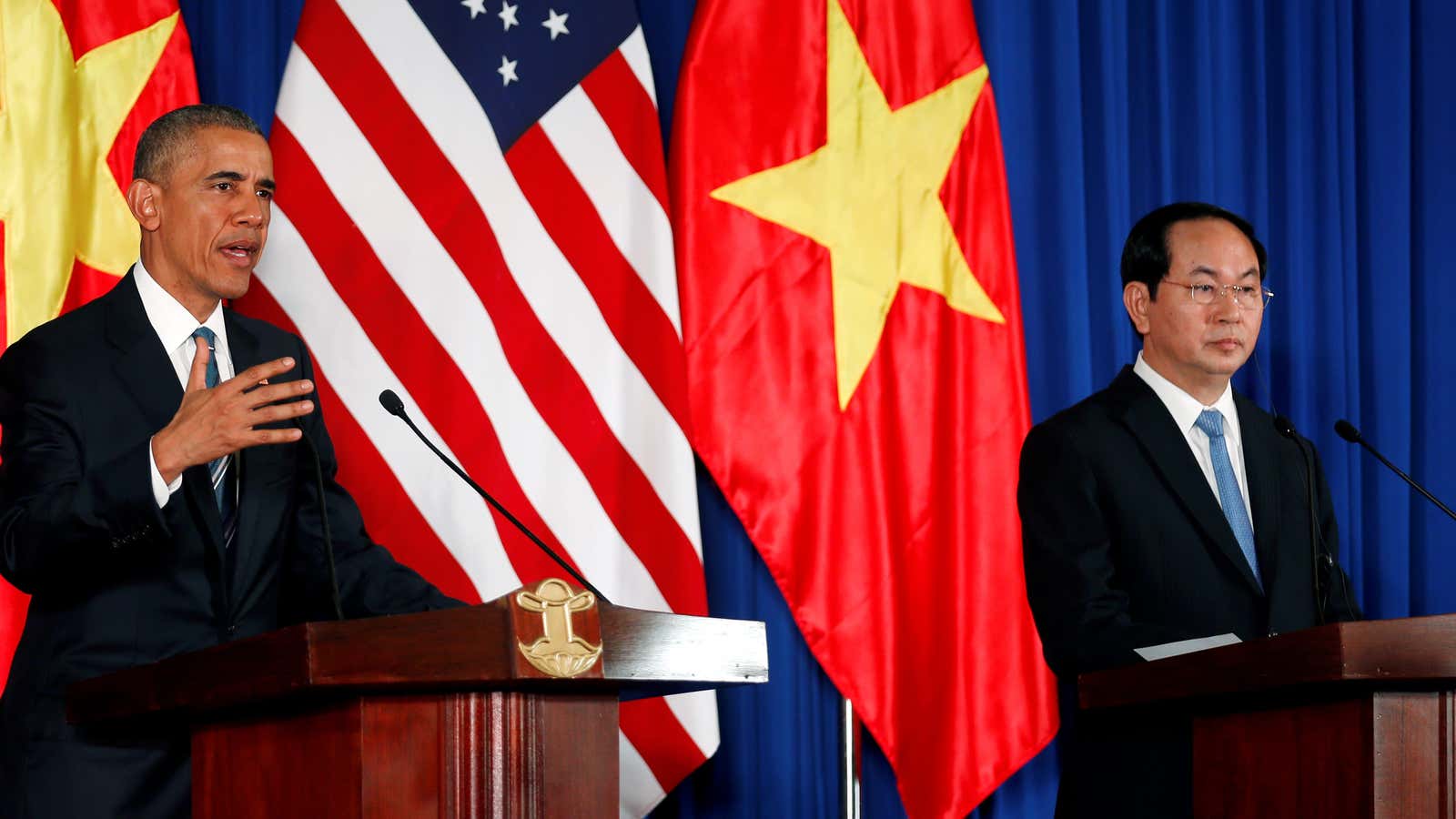Just over four decades ago, the US was mired in a deeply unpopular war in Vietnam in which it tried to prevent a communist takeover of South Vietnam. Today (May 23), president Barack Obama announced the full lifting of an embargo on the sales of lethal arms to the communist party that eventually took over the entire nation anyway—and still rules it.
Obama said the move was part of a deeper defense cooperation with Vietnam, and dismissed suggestions it was aimed at countering China’s growing assertiveness in the region. He suggested instead that it was about normalizing relations between the nations.
But it’s hard to remove the escalating tensions in the South China Sea from the equation. Beijing claims nearly the entire sea as its own, despite international norms and overlapping claims by Vietnam and other nations in the region that are much closer to the areas in question. Obama noted the embargo’s removal would open the way for Vietnam to import a variety of US defense technology, especially maritime capabilities and hardware.
“There are no official statements from Vietnam about its military requirements. But IHS analysis suggests that Vietnam’s requirements include maritime-security capabilities such as maritime patrol aircraft, coastal radars, and naval craft including coastal patrol vessels,” said IHS Jane’s analyst Jon Grevatt.
Both China and Vietnam call themselves “communist,” have one-party rule, and routinely squash dissent (leading to criticism from human rights groups prior to Obama’s visit). But the nations are also historical enemies, and tensions are high over the South China Sea. As Beijing has grown more assertive, other nations around the vital waterway have boosted their military presence and cooperation against China. The Philippines recently welcomed the US military back to a base in Subic Bay, and Japanese warships also docked in the area last month.
The South China Sea is rich in natural resources, including oil, natural gas, and fishing stock. In 2014, China sparked outrage in Vietnam by announcing an oil rig would be placed in waters also claimed by Vietnam. That led to violent protests at Chinese factories in Vietnam, leading to the evacuations of hundreds of Chinese.
Such tensions look likely to escalate in the coming months and years.
